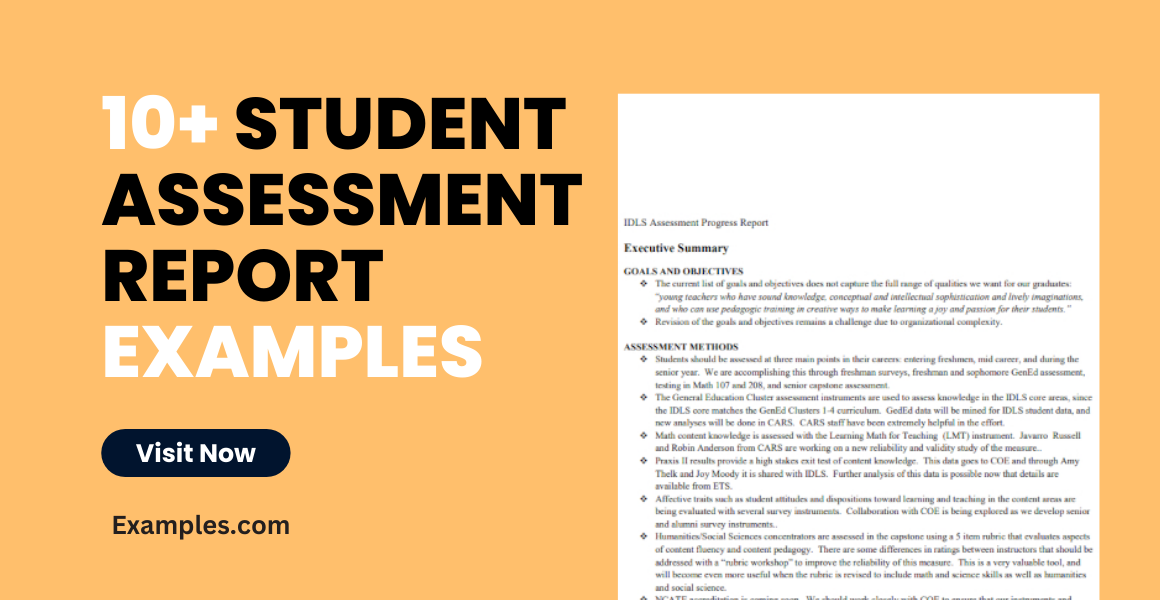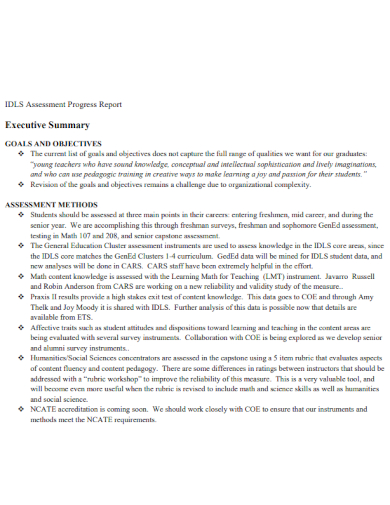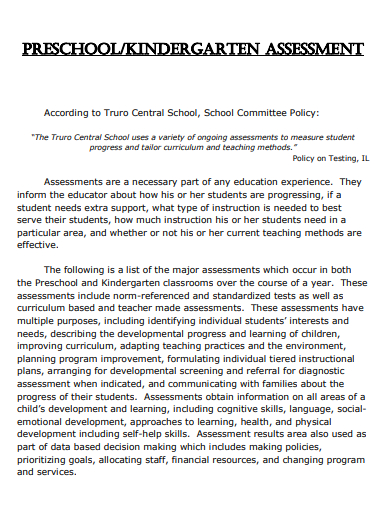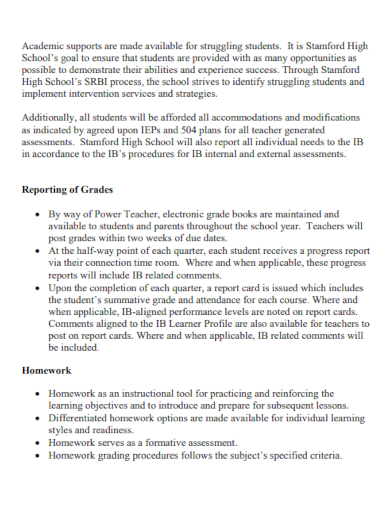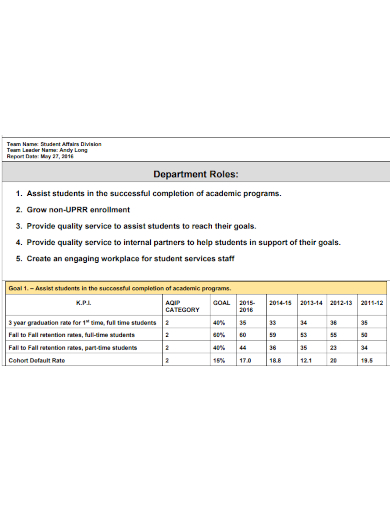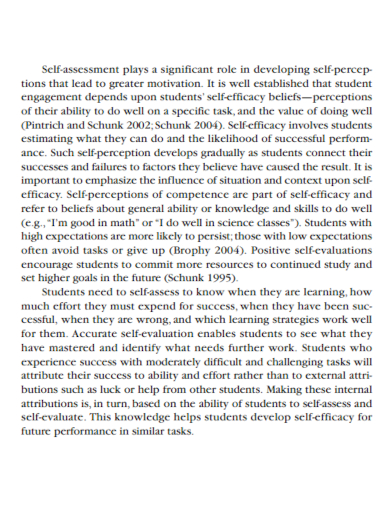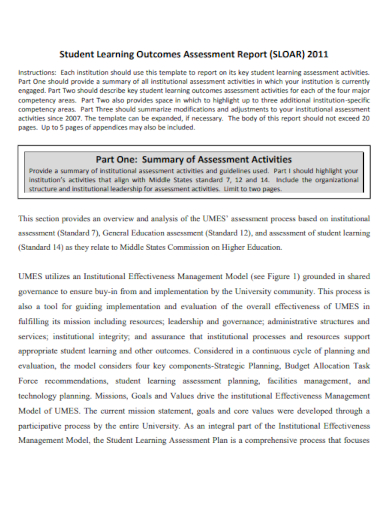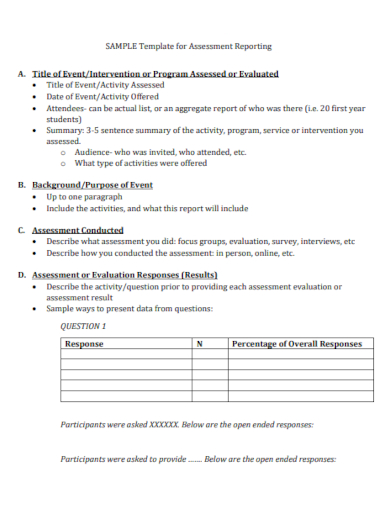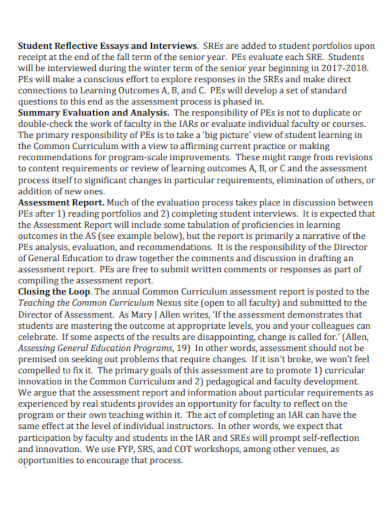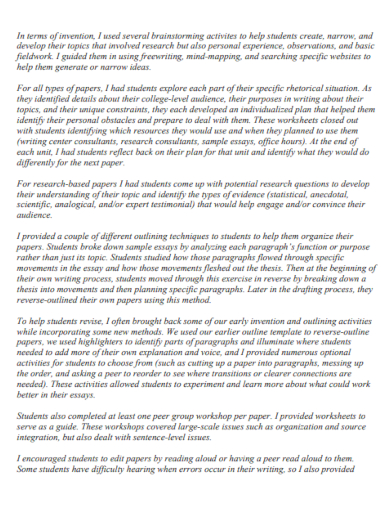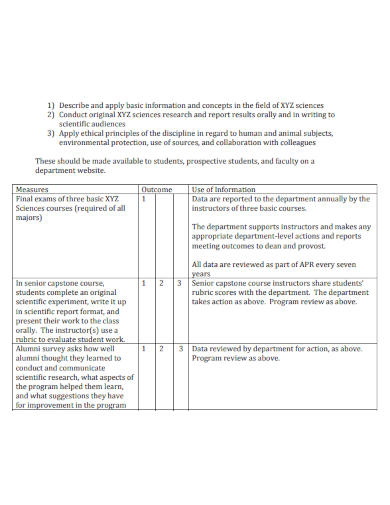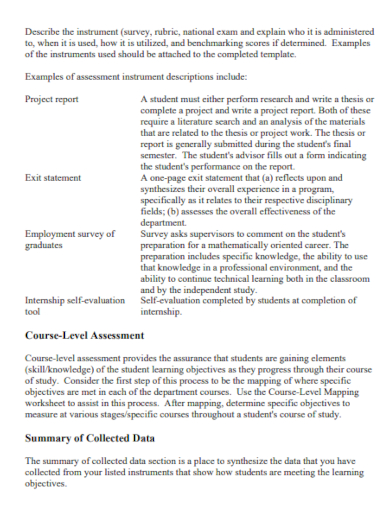10+ Student Assessment Report Examples to Download
Families and educators want more information to understand better how students progress toward and away from faculty and career readiness. Student assessment reports assist teachers and parents in understanding the status of their children. The goal is to alert states that are working on new, innovative college and career readiness assessments.
10+ Student Assessment Report Examples
1. Science Student Assessment Report
2. Kindergarten Student Assessment Report
3. High School Student Assessment Report
4. Student Affairs Assessment Report
5. Student Self Assessment Report
6. Student Learning Outcome Assessment Report
7. Student Assessment Report Template
8. Student Assessment Progress Report
9. Student Course Assessment Report
10. Undergraduate Student Assessment Report
11. Formal Student Assessment Report
What Is An Assessment Report?
The assessment report is a written record of the service assessment’s discussions and recommendations. The results of the tests you took during the assessment are included in the assessment report. It consists of the conclusions of IQ and personality tests and context on what these results mean.
How to Make A Student Assessment Report?
A report’s primary objective is to inform parents and students about a student’s accomplishments at the time of reporting. It summarizes the student’s progress since the previous reporting period and suggests actions that can be taken to ensure continued improvement. To assist you with your upcoming student assessment period, we’ve compiled a list of ten valuable tips for writing student assessment reports.
1. Understand and focus on the main point.
When writing reports to parents, it is critical to make each comment clear. Attempt to use two connected ideas per sentence to describe the student’s progress. Also, keep in mind to always keep your attention on the primary issue. When writing reports, it’s all too easy to get sidetracked and include extra information. Parents need to be informed only about critical issues affecting their children. Extraneous information will only add to the confusion.
2. Inform parents about their child’s academic progress.
When writing reports, try to avoid detailed curriculum descriptions or lists of all classrooms and activities. Parents would like to know how their child performs against the expected performance levels and areas for improving their child.
3. Take note of the child’s current performance.
Parents want to know what their child learned, how well they performed, any areas for improvement, and what to do to help their child meet the following achievement standard when they read their child’s report. Try to stay away from any comments that solely refer to task completion or provide an evaluation.
4. Use evidence to back up your claims and a checklist.
Refer to samples of the work of students when writing reports. Use these work samples to indicate students’ achievements with the standards or other students. Basing your comments on quality evidence and being willing to give examples of your child’s work to parents. Evidence also includes teacher information, such as anecdotal notes, tracking sheets, and scoring records. Remember to write using a report checklist. You can check the results, school support, and learning areas, suggest parents help their child progress, and provide general comments on new learning goals. A checklist will ensure you have student achievements included.
5. Engage the student
When writing reports, incorporate as much student input as possible. Encourage students to create personal learning objectives and evaluate these objectives after the learning period. Let your students identify their strengths and areas for growth. Include these learning objectives and assessments in your reports to personalize them and hold students accountable for their learning.
FAQS
What are the different types of assessment procedures?
The evaluation process is a guideline and contains accurate statements for each evaluation. Here are defined the individual evaluation steps. For these objects to be evaluated together with the corresponding evaluation specification, the assessment process can be maintained physically.
What are the different types of assessment activities?
The sample assessment activities demonstrate a wide range of strategies teachers use to learn about their students’ abilities and understandings, ranging from asking questions during class to administering a formal standardized assessment.
What is the definition of effective assessment?
A practical assessment is always relevant to its intended purpose and efficiently administered by the practitioner. When selecting an appropriate evaluation, the following characteristics are considered: reliability, validity, inclusivity, objectivity, and practicability.
Assessment is critical to the learning and motivation processes. The assessment tasks that we assign to our students influence how they approach the learning task and the study behaviors they employ. If you intend to create one, you can refer to the tips provided below. Are you prepared to make a Student Assessment Report? Check out the sample templates right now!


